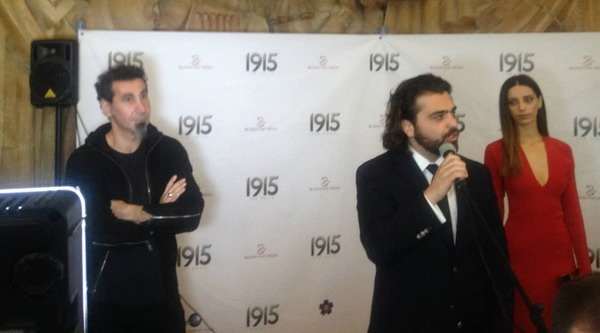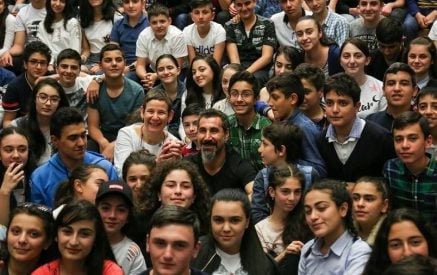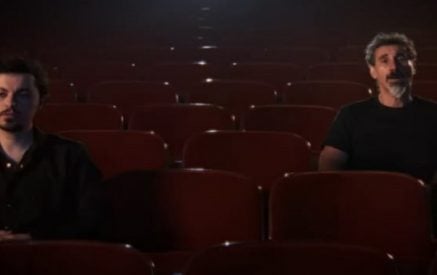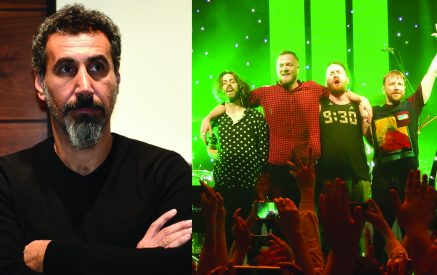The film “1915” is a psychological thriller, which is more often called a psychological mystery. It is about our past and our memory. It is about how the ghosts of the past continue haunting us no matter where we are,” says the film’s co-author and film director Garin Hovannisian, emphasizing that with this film, he and the other author of the film, film-director Alec Mouhibian, tried to awaken the human feelings, memories, and thoughts. The US-produced 82-minute film “1915”, this year, is included in the “Armenian Panorama” program of the “Golden Apricot” Yerevan International Film Festival. The film was presented to the public for the first time this year, on April 25. The film’s cast includes actors like Simon Abgaryan (character, Simon), Sam Page (James), Angela Sarafian (Angela), and Nikolai Kinski (Tony).
The music was written by the world-famous rock singer Serj Tankian. This is how it happened. “Atom Egoyan was one of the first readers of the film scenario. He liked the script a lot, encouraged us and recommended to definitely shoot it. Egoyan has the habit of doing a favor in secret. And one of those favors was that one day, Alec and I met with Serj Tankian. Serje told us that Atom has told him that we have a good script, and he wants to write the music for it. He read the script, probably got excited because the film was not yet shot, he began composing the music, which in itself speaks about the topic covered in the film,” said Garin Hovannisian today during the news conference with the journalists.
The film’s plot is as follows: exactly one century after the Armenian Genocide, film director Simon Mamoulian decided to stage a performance at the “Los Angeles” Theater founded by Charlie Chaplin to commemorate the victims of the Armenian Genocide. Because of the theme of his performance being controversial, it was welcomed with “swords”, especially because of the episode when the salvation of the Armenian woman took place with the help of a Turkish colonel. Some consider this to be a disrespectful attitude towards the victims of the genocide, which resulted in the blockade of the theater, threatening letters and phone calls to the director, and intimidation to the producer and among the actors. Simon Mamulian’s idea is quite dangerous, but the ghosts of the past are everywhere, aren’t they. They are waiting for bridging the past and the present through the memory.
One of the actors suggested changing the end of the story, to embellish it, but Simon was adamant that the genocide did not have a positive ending, the history cannot be colored. The performance, however, was staged, and the film ends with the well-known lullaby “Come my Nightingale” sounded by survivor Angela’s lips, which, by the way, is also selected as an epigraph to the film. Garin Hovannisian says that together with Alec Mouhibian, they had initially set two tasks before them: to present the people ignorant of the genocide about what has happened hundred years ago, and to deliver all of this to the new generation is a contemporary form. “Such films are usually doomed to failure because they are trying to solve these two problems. Therefore, they cannot be a clear and cinematic experience. These are tortured films and have a burden. When writing the script, shooting the film and working with the actors, we did not feel us free to reach the peak of the art and let the flight of our imagination take us to the “unattainable path of glory” through cliffs and mountains because we have work to do, we have a history and we are its servants,” summarized he.
Read also
Siranush HAYRAPETYAN
Photo by Lilit Sarukhanyan




























































